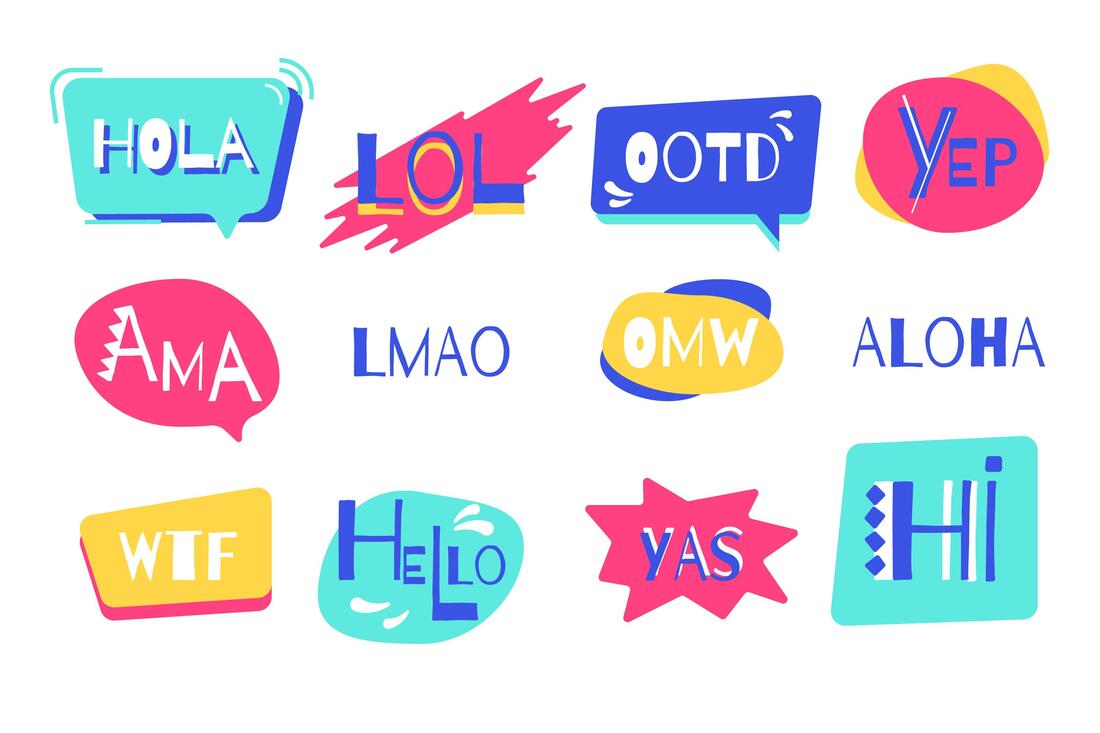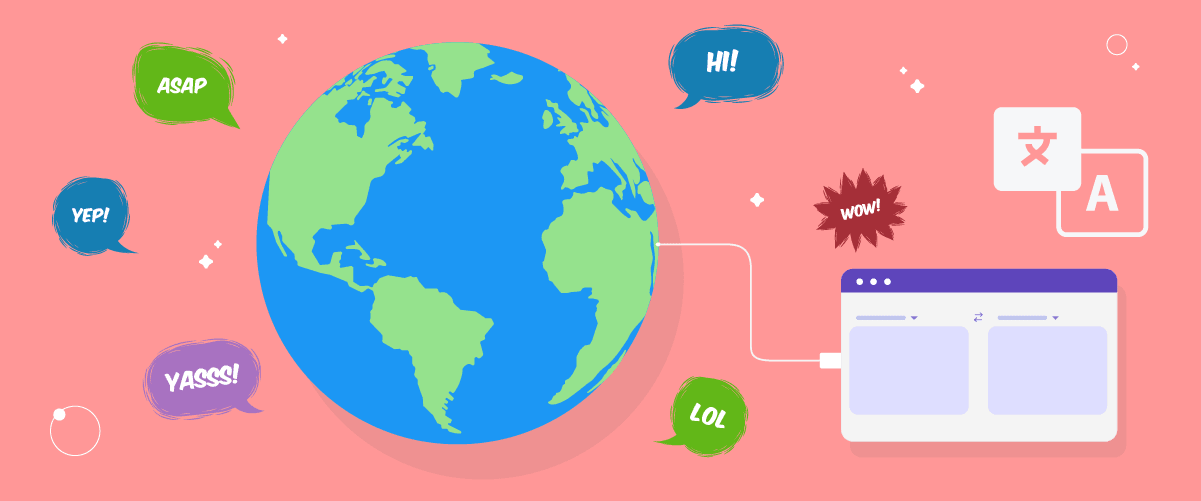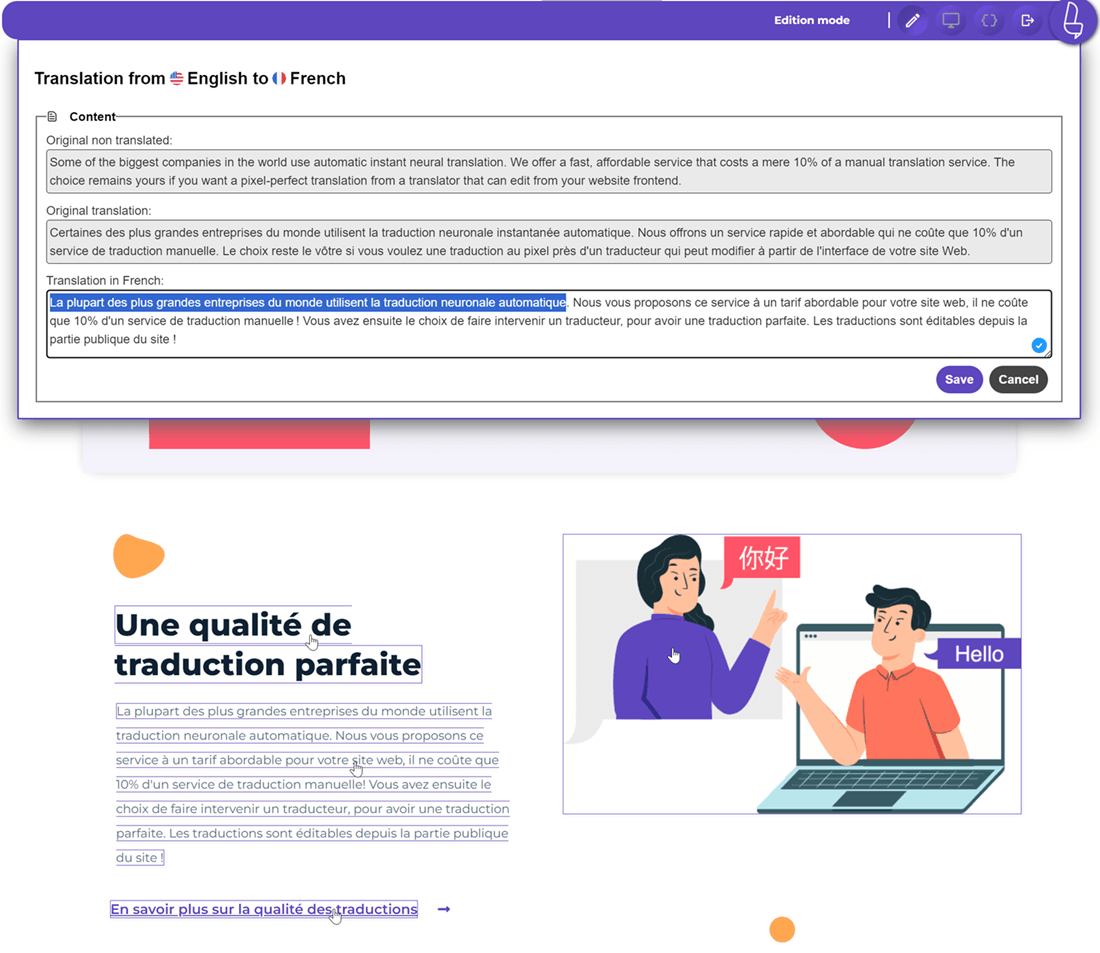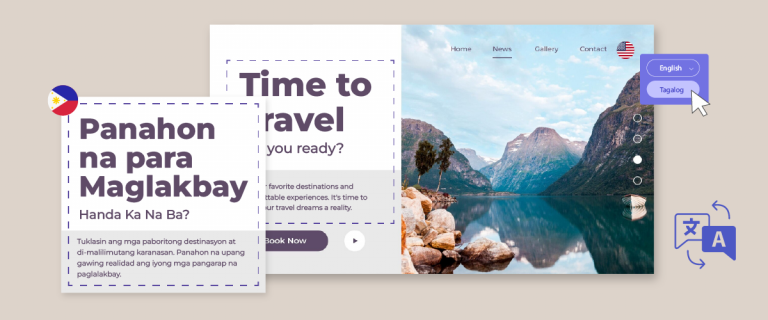Slang refers to the informal or non-standard language utilized by certain social groups in specific contexts, often to convey emotions, viewpoints, or humor in a more vibrant and relaxed manner than formal language. However, in terms of Translation, slang often poses a challenge for translators.
Accurately conveying both meaning and tone across languages has become increasingly important to avoid misunderstandings, which also holds for translating slang. Therefore, this article will help you understand the concept of slang in the world of Translation, provide tips for translating slang, and offer examples.
What is slang?

Slang is an informal term used in everyday conversations, particularly by specific groups such as teenagers or certain communities. Slang is often unique, creative, and rapidly changing over time.
Slang represents a highly dynamic and rapidly changing form of language. It reflects creativity and spontaneity in communication and provides a distinct identity for a particular group or community. Because of this, slang is often considered a more expressive, humorous language that can create a familiar atmosphere in a conversation.
Another function of slang is as a marker of social status and age within a specific group. Teenagers often use slang to differentiate themselves from adults and to create a sense of camaraderie with peers. In some cases, slang can serve as a kind of secret code understood only by members of a particular group, adding to the sense of exclusivity and intimacy among them. Here are some examples of slang from various languages.
English slang
- LOL: laugh out loud
- Chill: Relax
- Iykyk: if you know you know
- Slay: someone who has done so exceptionally well that they killed it
Canadian slang
- Loonie: Gold-colored $1 coin in Canada
- Keener: a person who is very enthusiastic or enthusiastic
- The Rock: Refers to Newfoundland or Vancouver Island if they are from British Columbia.
- Canucks: a Canadian
French slang
- Bouffer: eat
- Draguer: flirt
- Mec: guy
- Bouquin: book
And there are still many slangs originating from various other languages. Nevertheless, slang should be adjusted to the context and audience to avoid appearing impolite or inappropriate.
Why should you translate slang into other languages?
Translating slang is not just about translating its words into another language but also about localizing it to fit the culture and context of the target audience. Incorporating cultural idioms and slang is also one of the ways to localize content to sound authentic locally.
However, if the localized content already contains slang from the outset, that slang must be translated to convey the intended effect fully.
For example, in the American comedy film “Superbad” (2007), there is a scene where one of the main characters, Evan, uses the slang phrase “That’s so money!” after seeing his friend Seth’s flashy appearance. The slang phrase “money” here means “cool/awesome.”
However, if translated literally into English as “That’s so money!”, the meaning would be confusing and out of context. English-speaking viewers might be puzzled by this literal Translation.
To maintain its meaning, the slang phrase “That’s so money!” should be translated with equivalent slang in English, such as “That’s really cool!” or “That’s awesome!” This Translation better captures the true meaning intended by the character Evan.
A precise translation of slang demonstrates to the intended audience that you grasp their language and cultural nuances, a fundamental aspect in fostering trust. It also prevents misunderstandings or worse.
Another reason why translating slang is important:
- It helps to create a closer connection with the target audience
- Enhances the credibility and authenticity of the content/brand
- Allows the content/brand to appear more humorous and engaging
- Prevents cultural confusion or contextual misunderstanding
However, translating slang can pose challenges. Next, we will discuss some of the challenges encountered in translating slang.
Challenges of slang translation
Although translating slang is crucial for your content, there are several challenges to face in translation.
- Dynamic and rapidly changing: Slang is created and constantly evolving in pop and contemporary culture. New terms continue to emerge, while old ones can quickly become outdated. This requires translators to update their knowledge of popular slang continuously.
- Differing levels of formality: Slang is typically used in informal conversations, whereas in Translation, the formality level of the target text may differ. Translators must balance the use of slang with the appropriate level of formality to avoid sounding strange or inappropriate.
- Lack of formal documentation: Unlike formal terms and expressions, informal language is rarely extensively documented in official dictionaries. Therefore, translators often struggle to find reliable reference sources. This necessitates linguistic skills and a deep understanding of cultural differences between language pairs.
- Use of local dialects: In some cases, slang may involve using words from specific dialects. This adds complexity for translators, who must understand the origins and meanings of these terms before translating them.
- Generational gap: Different age groups have different preferences and interpretations of specific slang terms. This complicates efforts to bridge the generation gap and accurately convey the intended meaning.
How do you translate slang professionally?
After understanding the challenges of translating slang, let’s discuss some methods you can use.
Softening
The softening method translates potentially vulgar or offensive slang terms or expressions into the target language. Translators generally translate them more gently to be better accepted by the target audience by local cultural norms.
For example, consider this dialogue in English:
- Mia: “I can’t believe this is happening. I’m, like, totally freaking out.”
- Lilly: “Just chill, girl. It’s gonna be okay.”
When translated into Indonesian:
- Mia: “Aku tidak percaya ini terjadi. Aku, ah, benar-benar panik.”
- Lilly: “Tenang saja, Sayang. Semuanya akan baik-baik saja.”
The word “freaking out” in English has a somewhat harsh connotation. Therefore, the Indonesian translator chooses “benar-benar panik” as a softer alternative.
Then “chill” is translated into “tenang” or “relax”, and the word “girl” in English also has an informal connotation that may not always be appropriate in Indonesian. Hence, the translator opts for “Sayang” as a friendlier alternative that fits the relationship between Mia and Lilly as friends.
Literal translation
As the name suggests, this method involves translating slang word for word from the source language to the target language. Although it may work for some expressions in certain language pairs, for others, the meaning may be different or lost in literal translation.
For example, “I’m dead” in English, which means finding something funny. The literal Translation into another language could mean “I am dead” and does not fit the context.
Stylistic compensation
This method involves replacing slang in the source language with expressions or slang that are contextually appropriate in the target language. This method is the most common and effective in translating slang because it considers the original context.
For instance, in English, “She’s a hot mess” means she is very disorganized. Then, in Indonesian, it’s translated as “Dia orang yang kacau balau.” to suit the language conventions in Indonesia better.
5 tips for translating slang professionally
Now that you know the methods that can be used to translate slang, it’s time to learn tips for translating slang and whether there are technologies that can assist you in translating slang.
Immerse in the culture
To translate slang accurately, you need to immerse yourself in the culture where the slang is used. This will provide a better understanding of the context and nuances of each slang term or expression.
The more deeply you understand the culture, the easier it is to accurately grasp and translate the meaning of slang. Additionally, you will be better able to recognize expressions or idioms that are suitable replacements for slang in the target language.
Contextual understanding
One of the biggest challenges in translating slang is ensuring that the true meaning of the term or expression is understood correctly in a specific context. A slang term can have multiple meanings depending on its context.
Therefore, it’s important to understand the specific context in which the slang is used in the source text. Is it used in casual conversation? Who is saying it, and to whom?
By considering the context comprehensively, translators can capture the right meaning and choose the most appropriate slang equivalent in the target language. This contextual understanding also helps to avoid misunderstandings or inaccurate translations.
Monitor social media trends and stay informed
Slang is dynamic and rapidly changing over time. Therefore, you need to constantly follow the latest trends, one of which is through social media. Today’s popular slang terms originate from Twitter, TikTok, and Reddit platforms. Therefore, it’s important to monitor social media trends regularly.
By monitoring accounts, hashtags, and popular conversations on social media, you can capture new trending slang and understand their usage context. This will help you expand your slang vocabulary and avoid staleness in translation.
Collaborate with native speakers or language experts
Even though you have tried to understand the culture and learn slang well, sometimes the perspective of native speakers or language experts is still needed to ensure the accuracy of Translation. Don’t hesitate to consult and collaborate with them.
Native speakers can provide valuable information about the nuances and context of slang usage that translators may overlook and help identify the most suitable slang equivalents in the target language.
Edit the results of slang translation using the live editor
Translating slang on website content can be done using a machine or automatic Translation. However, don’t just stop at automatic Translation; consider editing the translation results. This is to ensure quality and context suitability. The live editor is a suitable solution that allows you to see real-time changes.
With the live editor, you can evaluate whether the slang translation sounds natural and fits the style of the target language.
Moreover, the live editor also allows you to collaborate with professional translators for collaboration and discussion.
The role of a live editor in translation services is crucial. Therefore, choosing an automatic translation service that also provides a live editor feature to edit slang translations is important.
Linguise front-end live editor to edit your slang translation

Linguise translation service is one of the automated website translation services that offers a front-end live editor feature. This feature lets you edit machine translation results directly on the website’s front page.
Here are some benefits of using the front-end live editor:
- Clear context: By editing slang translations directly on the website page, you can see the context of their usage. This helps ensure that your slang translations align with the language style and context being discussed.
- Direct visualization: The live editor lets you see changes in slang translation in real-time, so you can immediately assess whether the results sound natural and fit the target language. This direct visualization helps minimize errors and improve translation quality.
- Easy collaboration: Linguise’s live editor feature supports team collaboration, allowing you to invite native speakers or language experts into the editing process. They can provide input and suggestions directly on your slang translations, making the refinement process easier.
- Time efficiency: You don’t need to switch between different documents or platforms by editing slang translations directly on the website page. This can save time and increase productivity in the translation process.
Below is a view of the Linguise live editor that you can find on the Linguise dashboard > Live Editor. As shown in the view below, there are two parts of the Translation: the Translation of the original content and the Translation of the content into the target language.
To edit it, you just need to click on one part of the sentence on the website, and the view above will appear. In the Translation in (target language) column, enter the slang translation that best fits you.
In addition to editing translations, Linguise also allows you to do the following:
- Edit media and all external links from the dashboard
- Edit links to images per language
- Exclude translation, ignore text rules, exclude pages, and others.
- It is possible to add new members, whether as translators, managers, admins, etc. Adding translators to the Linguise dashboard helps you translate slang.
Conclusion
Translating slang professionally is a challenge in the content localization process. A deep understanding of the source and target cultures is required, as well as the ability to capture the context and nuances of slang. In translating, there are 3 methods commonly used, such as softening, literal translation, and style compensation.
To produce good slang translations, follow these tips, such as immersing yourself in the culture, continuous learning, understanding context, monitoring social media trends, and collaborating with native speakers/language experts. Live editor technology like that provided by Linguise also facilitates slang translation by allowing real-time editing and team collaboration.
For those interested in using Linguise to translate slang, let’s register your Linguise account and enjoy a free 30-day trial period and unlimited access to all Linguise features!





